UnChained At Last: The United States’ Child Marriage Problem webinar reflection

By Cate Cox On June 17th, UnChained At Last held their webinar, “The United States’ Child Marriage Problem.” Founded by a survivor of forced marriage, Fraidy Reiss, UnChained At Last is the only U.S.-based organization working to end forced and child marriages through direct advocacy and services. During this webinar, they explored their work and research into ending child marriage. At this event, they were joined by advocate Chelsea Clinton, author and influencer Blair Imani, bipartisan state Senators Julia Salazar (New York) and Katrina Shealy (South Carolina), Dr. Yvette Efevbera of the Bill & Melinda Gates Foundation, and survivor and advocate Patricia Abatemarco. Globally, 15 million girls are married before their 18th birthday. In a study conducted by UnChained At Last, they found that between 2000-2018 approximately 300,000 children were married across the United States, the majority of whom were underaged girls marrying adult men. The marriages documented involved girls as young as 10 years old. Also, 60,000 of all documented marriages involved a couple where the age difference between the two would constitute statutory rape if they were not married. Child marriage predicates a multitude of physical and mental health issues: abuse, lack of education, and poverty. Yet, public understanding of the severity of child marriage in the U.S. is very limited. Like many types of gender-based violence, including female genital cutting (FGC), child marriage in the U.S. is upheld through complicated systems of patriarchy, economic survival strategies, cultural norms, and legislative inaction. Both Senators Salazar and Shealy agreed that culture and shame are a major cause of the continuation of the practice. Within communities with a history of child marriage, many are unable to understand the multi-layered harms of this practice, and many survivors say their parents forced them into marriages to avoid communal shame from pregnancy or rape. These notions of shame and cultural necessity undermine many forms of gender-based violence, forcing girls to sacrifice their autonomy and future or risk ostracization. Yet, the thousands of girls forced into marriage across the U.S. are often unable to access support services to escape dangerous situations. Being underage, in many states, they cannot hire a lawyer, file for divorce, go to a domestic violence shelter, file a protective order, and other life-saving support systems if they become trapped in abusive situations. The irony of this is astounding, girls are old enough to be wives but not to be divorced. This loophole traps girls in cycles of violence and destroys families. At the beginning of this webinar, UnChained At Last shared their heart-wrenching video: The Girls You Have Destroyed, filmed by survivors of child marriage. By highlighting the stories of survivors (not unlike the Voices to End FGM/C videos by Sahiyo) they were able to show the real impact of this issue and highlight its deeply personal effects on women and girls. UnChained At Last staffers explained that they are working state-by-state to outlaw the practice of child marriage, since only five states including New Jersey, Delaware, Pennsylvania, Minnesota, and Rhode Island, have an outright ban on marriages involving persons under-18. There is no federal law against it. In order to push for legislative change, the approach of Sahiyo and other organizations to outlaw FGC in the United States mirrors that of UnChained At Last. Both are using a state-by-state approach, while simultaneously pushing for legislation at the federal level. While there is now a federal law, the STOP FGM Act of 2020, and 40 states with state-specific laws, it took the tireless work of activists across the U.S. to implement the most, seemingly inarguable, protections for girls against FGC. In better news, UnChained At Last found that the number of child marriages in the U.S. decreases every year. However, the speakers still stressed the continued importance of raising awareness about this issue. They highlighted that while U.S. foreign policy may condemn child marriage as a human rights abuse, we still allow it to be practiced on our soil. Speaker Blair Imani explained that the notion that child marriage is a “far away problem that requires faraway solutions” is one of the major barriers to addressing this issue in the U.S. While watching this webinar, I could not help but notice the similarities between the work to end child marriage and our work here at Sahiyo to end female genital cutting (FGC). From the intergenerational norms to the dismissal of the issue as a foreign phenomenon, the problems at hand are very similar. Both Sahiyo and UnChained At Last have struggled to make people aware of the severity of these issues within the U.S., and the urgency to address them. While discussing legislative action, one of the speakers in the UnChained webinar remembered speaking to a state legislature who told her, “Is it really that bad if a girl marries her rapist?” I was immediately drawn back to similar arguments advocates against FGC have heard such as, “It’s just a prick,” or, “It’s not that bad.” The severe harms caused by FGC and child marriage to women and girls are routinely dismissed, and survivors are left without support systems. At the same time both Sahiyo and UnChained At Last stress the importance of uplifting survivors’ voices, both for their personal healing and to create legislative change. Through tireless work, they and Sahiyo are making the world a safer place for girls, and are championing a world free of violence against women. You can watch the full webinar here: https://www.youtube.com/watch?v=xKlqmMqePks
Female genital cutting: Underacknowledged and underrecognized in the United States
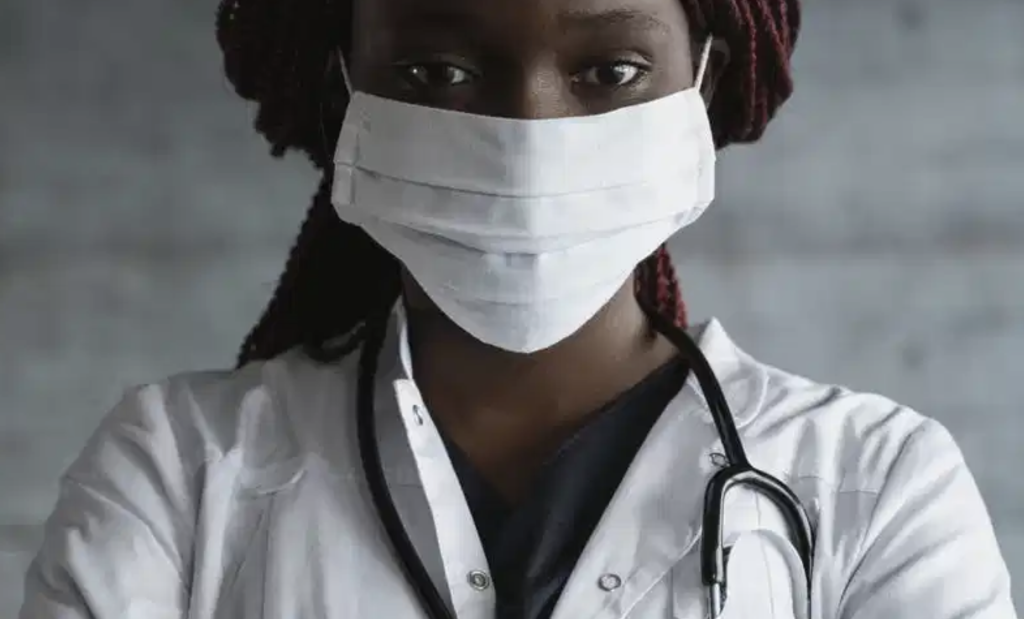
By Cate Cox On June 3rd, 2021 Sahiyo partnered with the Connecticut Trauma and Gender Learning Collaborative and The George Washington University associate professor Dr. Karen McDonnell to hold a training for healthcare professionals who may interact with survivors of female genital cutting (FGC). The Connecticut Trauma and Gender Learning Collaborative focuses on trauma-informed and gender-responsive treatment. Many of the participants are actively providing clinical services. This presentation explored FGC in the United States and resources available for clinicians and other front-line professionals who may come in contact with women impacted by FGC, as well as how they can provide trauma-informed care. In particular, our training highlighted The George Washington University’s Women and FGM/C Toolkit as a tool to help further their education and to become better prepared to support survivors in their journey toward healing. Alongside the GW Women and FGM/C Toolkit, we highlighted Sahiyo resources such as the Trauma Blog Series by Joanna Vergoth, founder and executive director of forma, among others. During the training, we also used some of our Voices to End FGM/C videos to highlight the lack of education on how to support survivors of FGC in the medical field and the imperative practitioners have to fill in those gaps to better support all women. At the end of the presentation many of the attendees said they didn’t realize how widespread the problem of FGC is in the U.S. They expressed that they are grateful to have had the opportunity to learn how to better support their patients. Overall, trainings such as this one are crucial to help providers learn how to best support survivors and to help expand the understanding that FGC is a problem in the U.S. that we all need to be involved in addressing.
Webinar: Female genital cutting is an under-recognized form of gender-based violence in the U.S.
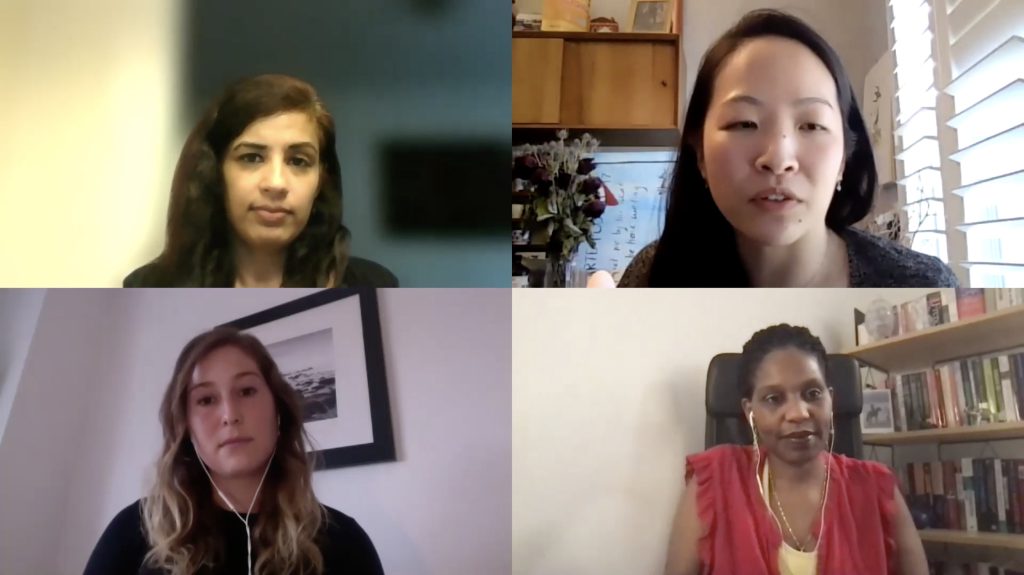
By Cate Cox On April 15th, Sahiyo partnered with the U.S. End FGM/C Network and the Asian Pacific Institute on Gender-Based Violence (APIGBV) for our webinar: Female Genital Mutilation/Cutting (FGM/C): An Under-Recognized Form of Gender-Based Violence (GBV) in the Unites States. This webinar was the second in a series that explored the intersection of FGM/C and GBV; how COVID-19 has impacted the prevalence of FGM/C; and how providers can offer better care to survivors. FGM/C is a reality for many women and girls across different communities in the United States. Yet, for centuries, FGM/C has remained a hidden practice. It’s often practiced by women on other females; and girls are raised to believe they must remain silent about what they underwent. Silence is an inherent part of this type of gender-based violence that can lead to lifelong physical and emotional health consequences. At the core of providing better prevention, protection, health, and social support services for women and girls are stronger data, enhanced research, and community engagement. Sahiyo co-founder Mariya Taher and members from the U.S. End FGM/C Network and APIGBV began this event by exploring the background of FGM/C and its global prevalence. The speakers dove into the history of FGM/C in the U.S., including legislative history and that of the practice itself. Then our speakers helped the audience make the broader connection between gender-based violence and female genital cutting. The audience, representing mostly Asian American Pacific Islander (AAPI) domestic violence/sexual assault organizations, identified many similarities including cultures of secrecy and silencing, shame felt by survivors, FGM/C as source of generational trauma, and FGM/C as a form of power and control over women. We also explored the lessons from the Ebola crisis in West Africa that can help us support women and girls during the COVID-19 crisis. Finally, we compiled a list of resources for service providers to further educate themselves on how to both adequately and ethically provide their services to survivors. At the end of the event, our speakers also answered the audience’s questions about their work and experience. Like many Sahiyo events, we also utilized the Voices to End FGM/C films throughout the presentation to help contextualize what the audience was learning and help them understand the stories behind the statistics. These films center the voices of activists and survivors advocating for an end to the practice. While data is crucial in order for us to grasp the scope of the issue, Sahiyo believes that storytelling can be just as powerful a tool in educating people and championing the abandonment of this practice. Female Genital Mutilation/Cutting: An Under-Recognized form of Gender-Based Violence in the U.S. as a webinar was a continuation of the important conversation around FGM/C and GBV that also provided the audience with tools they could use in the real work to better support survivors. Our guests had the chance to explore the intervention and community engagement efforts occurring in this country to support survivors, how COVID-19 has impacted FGM/C and GBV, and how they themselves could help prevent future generations from experiencing FGM/C. It also showcased the amazing work, everyone, at Sahiyo, APIGBV, and the U.S. End FGM/C Network is doing in their capacity to advocate for women’s rights and call for the abandonment of the practice of FGM/C. If you were unable to attend this event you can find more information here. Watch the recording of this event. To learn more about APIGBV and the US End FGM/C Network, please visit their websites below: www.api-gbv.org https://endfgmnetwork.org/ Additionally, if you are are service provider you can find some of the resources mentioned at this event below: Bridging Refugee Youth and Children’s Services (BRYCS) – Health Practitioners Guide to Providing Culturally Competent Care for Women and Girls Affected by Female Genital Cutting Dahlia Project – Female Genital Trauma: Guidelines for Working Therapeutically with Survivors of Female Genital Mutilation AHA Foundation – Training Curriculum for Law Enforcement, Educators, and Service Providers
The United States has a law banning female genital cutting. What now?
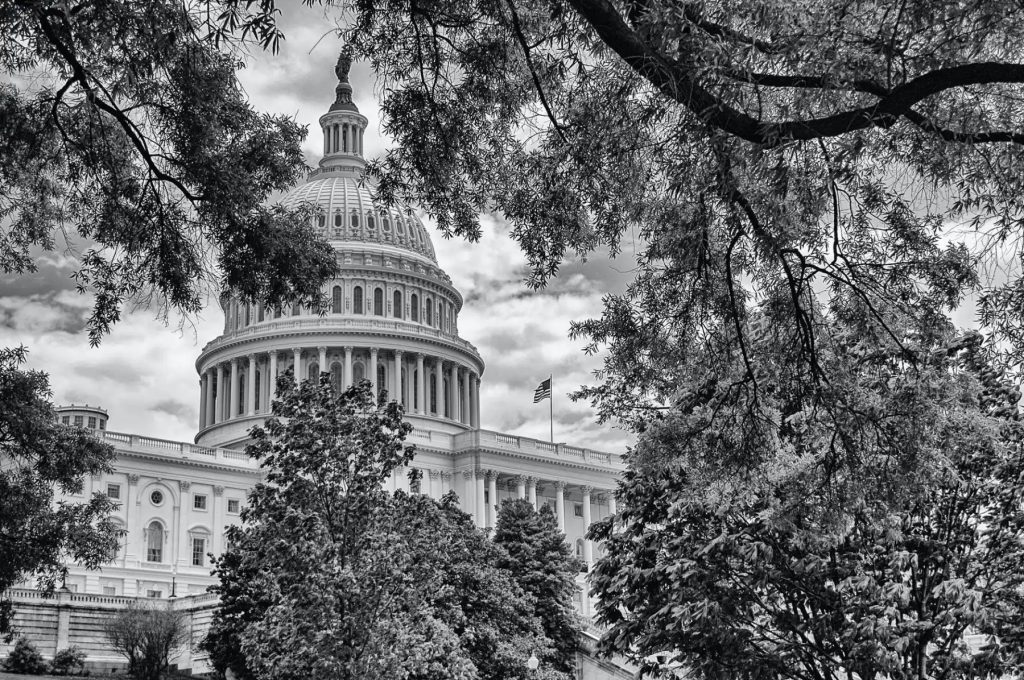
By Hunter Kessous On January 5th, the H.R. 6100-STOP FGM Act was signed into law, upon being passed through the House of Representatives and the Senate unanimously. The federal law criminalizes female genital cutting (FGC), a form of gender-based violence against young girls, which involves medically unnecessary partial or total removal of the external genitalia. According to the Centers for Disease Control, over 500,000 girls and women have undergone or are at risk of undergoing FGC in the United States alone. Globally, that number rises up to 3 million girls at risk per year, with a total of over 200 million girls and women having been cut. The STOP FGM Act strengthens the opposition to FGC by stating that religious or cultural beliefs may not be used in defense of the practice. Additionally, government agencies, such as the Departments of Education and Justice, will be required to report to Congress on the estimated number of women and girls who have undergone or are at risk of FGC in the U.S., and on efforts to prevent the practice. They will also give a report on the actions they take toward educating the community and preventing FGC from continuing. Advocates and policymakers have been working toward this goal for so long that it was concerning when the new law didn’t garner a lot of media attention. This could be because the U.S. has technically had a law against FGC since 1996—emphasis on technically, because for the past two years, the Department of Justice has refused to enforce the law. The only intact portion of the law has been a ban on taking a minor out of the U.S. to be cut, a practice known as vacation cutting. In 2018, a Michigan doctor was taken to court for the mutilation of over 100 girls. The judge dismissed the charges and ruled that Congress did not have the authority to pass the FGC law by associating it with the Commerce Clause, claiming that there is nothing “commercial or economic” about FGC. The STOP FGM law clarifies that FGC is, in fact, linked to inter-state or foreign commerce, thereby confirming Congress’ power to make FGC illegal. Since that pivotal case over two years ago, young girls are now protected against FGC under federal law. Although there is reason to celebrate, activists aren’t putting their feet up anytime soon. As far as policy goes, there is still more work to do. Despite the federal law, state laws against FGC are a necessary tool. Federal and state laws each protect girls in different ways. The federal law against FGC will be put to use if the crime involves interstate activity, such as transporting a girl to another state to be cut. We need state laws against FGC to protect girls in cases of local criminal activity, as was recommended by the judge in the aforementioned Michigan court case. To date, there are still 11 states which do not have any laws against FGC. In the states that do have anti-FGC policies, action must be taken to make these laws more comprehensive. Several states do not clarify that cultural/ritual reasons and alleged consent may not be used as a defense for performing FGC on a minor. Few states have legislation which includes a provision for community education and outreach, which is a key component of prevention. In addition to improving state laws, even more can be done at the federal level. Policy from the Department of Education and Health and Human Services requiring FGC education in schools can go a long way toward prevention. “While we celebrate the signing of H.R. 6100 and the recent Massachusetts law, we must continue to advocate for not only the criminalization of FGM/C, but a Federal Education Law,” said Angela Peabody, founder of the Global Woman P.E.A.C.E Foundation and political lobbyist. “It is imperative for every child in the United States to be knowledgeable about the practice of FGM/C. Even though several states have included an education clause in their laws, a federal law would cover all states. The schools already teach Family Life Education; therefore including the study of FGM/C in the FLE curriculum is not a difficult task. Virginia is already in the process of doing that.” Virginia has incorporated education about FGC into their school curriculum for middle and high schoolers in which they learn “the dangers of FGC, the criminal penalties, and the rights of the victim.” Education such as this serves to increase awareness, put an end to the thinking that FGC is not an American issue, and give a voice to the next generation of activists. The current law criminalizes FGC, and calls on several government agencies to enact programs that will protect girls and create public awareness. The law left the guidelines for these agencies vague, which leaves room for experts and advocates to guide these departments. There are many ways, for example, that policy can support girls and women living in the U.S. who have already undergone FGC, or those who will be cut in spite of the new law. Survivors face a range of physical and psychological complications. These include, but are not limited to, infection, fistulas, birth complication, sexual dysfunction, and post-traumatic stress disorder. Policy could go a long way to alleviate these burdens. For example, survivors of domestic violence are permitted to enroll in an ACA healthcare plan at any point during the year, rather than just during the open enrollment window. A policy such as this being applied to FGC survivors and their dependents would be a great step toward increasing access to healthcare. Yet, many of the less expensive healthcare plans do not provide counseling services, and this may not be apparent until after the plan has been purchased. Therefore, another area where legislation could protect FGC survivors is by creating federally funded programs to provide needed health care services, which may be lacking from their current healthcare plan, at subsidized rates or at no cost. There was
Texas woman charged for Female Genital Cutting: Sahiyo press statement

A woman from Houston, Texas (USA) has been charged under federal United States’ law for transporting a minor out of the country for the purpose of Female Genital Mutilation/Cutting (FGM/C). According to the Federal Bureau of Investigation (FBI) which is investigating this case, the 39-year-old woman allegedly transported the child sometime between July 10 to October 14, 2016. This is the first time that the US Department of Justice has indicted anyone under this specific clause of the US anti-FGM/C law, i.e, transporting a minor girl outside of US borders to facilitate the practice of genital cutting. While FGM/C has been illegal in the United States since 1996, this clause was introduced in 2013. The FBI is investigating the case with the support of the Human Rights Violators and War Crimes Center, a government agency that works to identify, locate and prosecute human rights abusers in the US. While further details about this case are awaited, it is important to note that the Houston woman has not been charged under the new federal anti-FGM/C law that was signed by the US President on January 5. Since the alleged crime took place in 2016, she has been charged under section 116(d) of the older federal law against FGM/C. The older federal law has been the subject of controversy since April 2017, when two Michigan doctors and six other members of the Dawoodi Bohra community became the first people to be prosecuted for performing/facilitating FGM/C on at least nine minor girls in the Michigan area. In November 2018, even though a US District Court judge acknowledged that FGM/C was a “despicable” practice, he ruled that the federal law prohibiting it was unconstitutional. This ruling was based on a technicality: the judge stated that FGM/C is considered a “local criminal activity” to be looked into at the state level rather than the federal or national level. The ruling triggered a controversy because it placed girls in the US at the risk of being cut. Only 39 out of 50 US states currently have laws prohibiting FGM/C, allowing room for girls to be transported across state borders to be subjected to the practice. The new “Stop FGM Act of 2020”, signed by the government this month, closes this loophole and allows federal authorities to prosecute people suspected of carrying out FGC anywhere in the country. Sahiyo statement: We at Sahiyo have been advocating for a complete end to the harmful practice of Female Genital Cutting, also known as Khatna or Khafz in the Dawoodi Bohra community, since 2015. FGC is a violation of the rights and bodily integrity of women and girls, and can have long-term physical, psychological and sexual consequences for them. In light of this indictment of the Houston woman, we strongly urge members of all FGC-practicing communities to completely abandon this age-old ritual, not just because it is illegal in the US and several other countries, but because it is harmful, patriarchal, medically unnecessary, and detrimental to the well-being of girls and women. At the same time, we also urge all global media publications to report on this case — and on the subject of FGC — with sensitivity and nuance. We request the media to refrain from vilifying specific communities, or using terms such as “barbaric” or “mutilation” that might trigger a survivor’s trauma. To learn more, check out Sahiyo’s Guide: A Resource Guide To Best Practice For Sensitive and Effective Reporting on FGM/C. For more information, email info@sahiyo.com or to contact Sahiyo U.S., email mariya@sahiyo.com.
Is legal action against female genital cutting enough to end the practice?
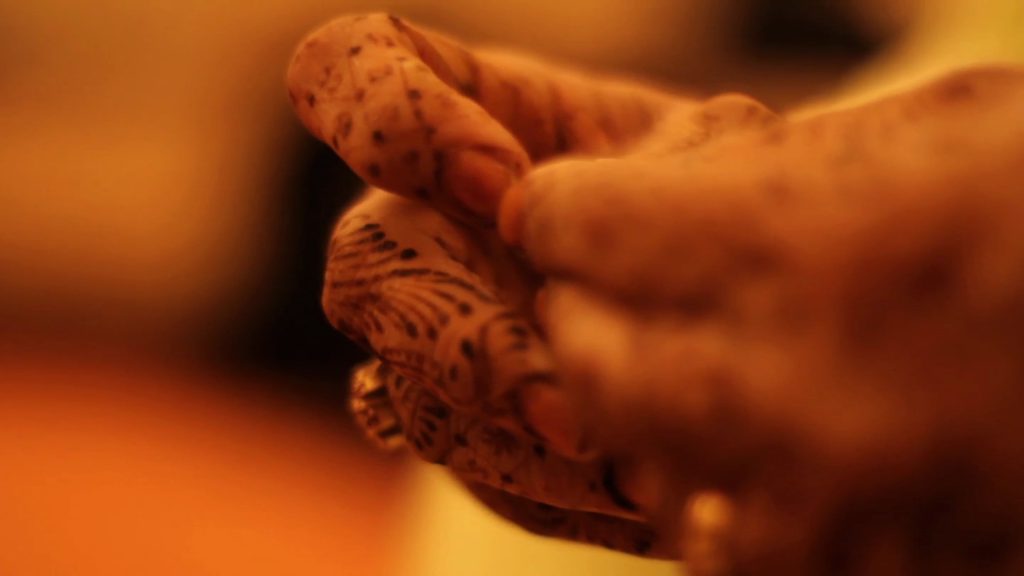
Understanding the impact of a Sahiyo co-founder’s documentary film, A Pinch of Skin, in India by Priya Goswami In September 2018, the Indian Supreme Court referred a Public Interest Litigation (PIL) on the prevalence of female genital cutting (FGC) in India to a five-judge constitution bench. My documentary film, A Pinch of Skin, was quoted as evidence by the Supreme Court of India to establish the prevalence of the practice. As the filmmaker, I was overjoyed with what my film had managed to do and become – the first audio visual evidence on the practice of FGC in India. There is no law in India against FGC. The PIL had been filed in 2017 by a Delhi-based lawyer seeking a ban on the practice of FGC in India. While other survivors of the practice joined in the petition against FGC, they were opposed by a counter-petition filed by a pro-FGC group within the Dawoodi Bohra community. That group claimed that FGC is not harmful and should be considered a part of their constitutional right to religious freedom. Accordingly, they demanded that the practice be scrutinized through this lens by a larger constitution bench of the court – an appeal that the court finally granted. With that said, a small part of me shrank hearing the news. I had intended the film to create debate around the subject and while legal reform may be one way of bringing about change, it will never be the mainstay for long term change. As an activist on the ground, I understand change requires sustained conversation. A law against the practice of FGC may become a mandate, but may also end up hindering the progress made by activists on creating a room for dialogue by years. “I had intended the film to create debate around the subject and while legal reform may be one way of bringing about change, it will never be the mainstay for long term change.” A broad evidence base for this is how some Dawoodi Bohra community members in the United States (U.S.) and Australia have hushed the practice, pushing it further underground, as the community members were charged in both countries with practicing FGC, or khatna as it is known in the Bohra community, and publicly spoke about it in the media. A federal judge dismissed all of the FGC-related charges in the U.S. case; whereas Australia’s High Court ruled all forms of FGC are illegal. While the cases against the community members in the U.S. and Australia have opened up the dialogue on the issue and more survivors have come forward, it has also instilled fear in the minds of some community members. This has, in turn, supported the movement toward medicalization of khatna, which is an equally dangerous trend. As an activist and a communication designer, I ask myself often – is pushing people to abandon the practice because the law says so ever a complete solution? Nine years ago, if you would have asked me what my goal with A Pinch of Skin was, I would have said to convince people to abandon the practice. Today, I say the same, except with the awareness that change requires time and persistent and effective communication, which involves the community from within. Key points to understand the situation in India: The conversation of female genital cutting in Asian communities is a relatively new one, as it is still largely believed to be an African problem. The subject was brought to public attention in India as an anonymous petition under the pseudonym ‘Tasleem’ was launched in 2011 or 2012. This was followed by media attention to A Pinch of Skin in 2013. In 2015, two collectives were formed to speak about the subject: Sahiyo and WeSpeakOut, both being the only organizations worldwide working on the subject of khatna prevalent in the Dawoodi Bohra community. In 2017, the two organizations, Sahiyo and WeSpeakOut, were invited by the National Commission of Women and Child Development to speak with Menaka Gandhi. The Indian government, after gathering first-hand evidence from survivors (also the co-founders of the two organizations), did a u-turn denying the evidence against the practice until this landmark judgment by the Supreme Court. Read this detailed report. The Dawoodi Bohra Women for Religious Freedom continue to discount efforts against FGC under the umbrella of religious freedom. Following the PIL, the Supreme Court of India ruled that FGC could be charged under The POCSO Act.
Survivor: Female genital mutilation as a form of ritual abuse
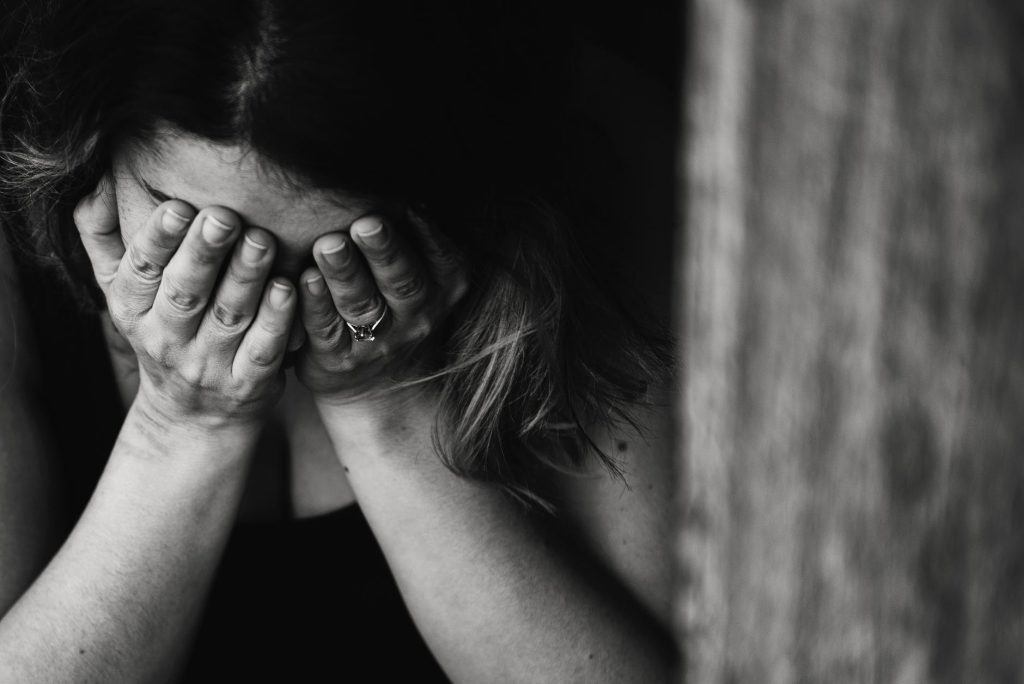
By Nevaeh Novak (Trigger warning: Below is one woman’s account of her experience with female genital mutilation in the United States. This story is deeply disturbing and may be triggering for some. We thank her for being brave and sharing her story with us.) My experience of female genital mutilation (FGM) was not due to any religious belief, nor was it a cultural practice, as is most FGM. It was intended only to be cruel and torturous. For most of 16 years of my childhood I was ritually, sexually abused. On my 13th birthday I was taken to a barn where my “fixing” ceremony would be performed. I was secured to a table and feet stirrups with chains and straps, leaving me unable to move any part of my body. I saw the blade as he prepared to cut me. All of a sudden, I felt a burning pain. It was so excruciating I don’t have words to describe it, other than feeling like I was on fire. He either stitched me or cauterized me almost all the way closed. He let my legs drop then he strapped them together. I was still unable to move. I was left alone in that position, in and out of consciousness, for a couple days. The man that called himself my father did this to me and said, “Now no one will ever want you.” It wasn’t until almost 43 years later when a doctor explained to me exactly what happened; that my clitoris had been cut out, that my labia had been removed, and that I had been mostly stitched closed. Until then I only knew I had been hurt, and was ruined. Although I know I may not “fit” into the typical category women who have undergone FGM, I want what happened to me to be known because there are other women who have been hurt like me. But, ritual abuse is just not talked about. I want to be a voice for them, so that they know these survivors are not alone, and that there is help and hope. Nevaeh Novak What is ritual abuse? In a 1989 report, the Ritual Abuse Task Force of the Los Angeles County Commission for Women defined ritual abuse as “Ritual abuse usually involves repeated, prolonged sadistic abuse, especially of children, over an extended period of time (sometimes years). It is almost impossible to imagine the realities endured by victims of ritual abuse: multiple abusers with systematic motives coordinated with the sole purpose of perpetrating and maintaining a cycle of abuse. It is carried out in contexts where children are in groups, and within families or groups of families. The physical abuse is severe and can include beatings, electroshock, torture (even death), confinement and/or forced ingestion of drugs, blood, and feces. The sexual abuse is painful, humiliating, and sadomasochistic– intended as a means of gaining dominance over the victim. The psychological abuse is devastating and involves the use of ritual indoctrination. It includes mind control techniques which convey to the victim a profound terror of the cult members – most victims are in a state of terror, mind control and dissociation. These activities are kept secret from society at large, as they violate norms and laws. For more information about this issue: https://endritualabuse.org/ https://survivorship.org/ https://survivorship.org/frequently-ask-questions/#rabroad http://ra-info.org/
Crave Foundation recognizes Sahiyo co-founder Mariya Taher as 2020 grantee
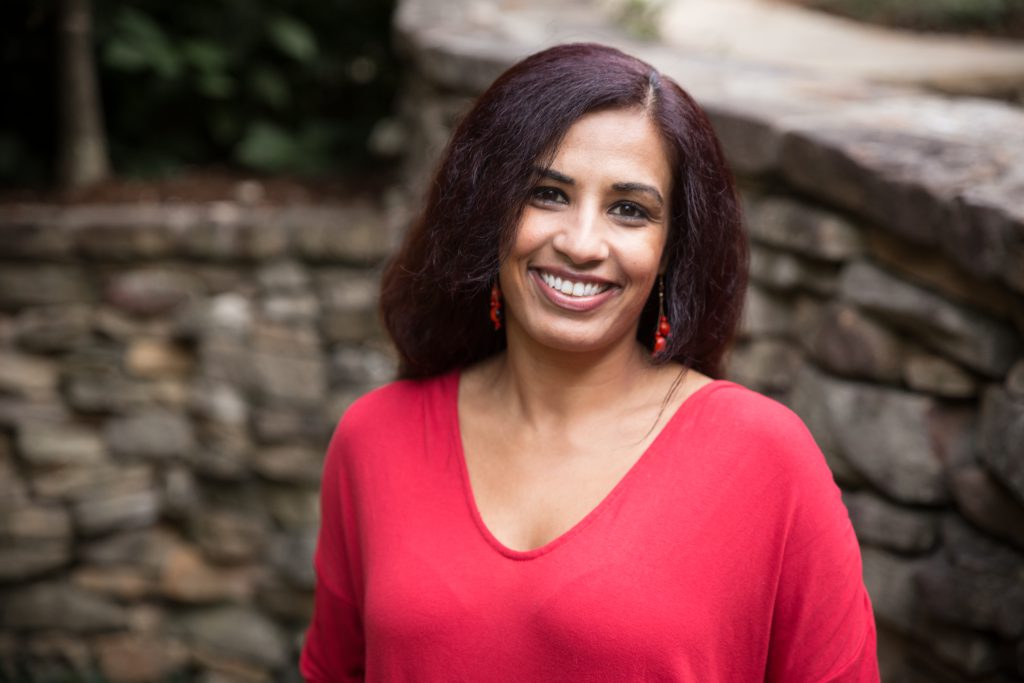
by Jenny Cordle The Crave Foundation for Women selected Sahiyo co-founder Mariya Taher as one of their inaugural recipients for an individual grant in recognition for her work to end female genital cutting (FGC) in Asian communities and beyond. In 2015, she co-founded Sahiyo – United Against Female Genital Cutting, an award-winning, transnational organization with the mission to empower Asian communities to end FGC. She is one of five 2020 grantees. The Crave Foundation acknowledges that “pleasure is a universal human right that can not be fully realized where there is injustice and violence against women.” The foundation recognizes individuals who are working in the gender-based violence areas of female genital cutting and sex trafficking. Their model is unique in that they provide no-strings-attached grants so that grantees can utilize the grants in the most appropriate way they see fit. “That is incredibly rare, and I’m brimming with ideas now on how to use these funds to further my work to both support survivors and prevent future generations of girls from undergoing FGC,” Taher said, who is a survivor of FGC. Taher’s work at Sahiyo focuses on storytelling programs and creating a critical mass of voices against FGC to “create a culture in which survivors can heal by connecting” to work toward creating a society where FGC no longer occurs. “I’m constantly learning and adapting my work and Sahiyo programs to fit the needs of both survivors and the communities they belong to in which FGC occurs,” Taher said. “For myself, from the very beginning, I started engaging in anti-gender-based violence work because I had both lived experiences with gender-based violence, and also knew so many other individuals who also had experiences of some form of gender-based violence, whether it was female genital cutting, domestic violence, or sexual assault. I understood how both culture, society, and even one’s family could play a part in perpetuating environments in which violence occurred, and I wanted to learn how to undo that violence.” In addition to her work at Sahiyo, Taher collaborates with the Massachusetts Women’s Bar Association on passing state legislation to criminalize FGC; an endeavor in which FGC activists and lawmakers had two victories when the Massachusetts House of Representatives and the Senate recently passed bill H.4606 – An Act Relative to the Penalties for the Crime of Female Genital Mutilation. The bill is now on Governor Charlie Baker’s desk to be signed into law. Taher also creates community education and outreach programs within the state on this issue. Taher serves on the steering committee for the U.S. End FGM/C Network. In 2018, Taher received the Human Rights Storytellers Award from the Muslim American Leadership Alliance. The Manhattan Young Democrats honored her as a 2017 Engendering Progress honoree, and ABC News did a special feature on her, entitled: Underground: American Woman Who Underwent Female Genital Mutilation Comes Forward to Help Others. Taher has worked in the gender-based violence field for over a decade in the areas of teaching, research, policy, program development, and direct service. She has worked at Saheli, Support and Friendship for South Asian Women & Families, W.O.M.A.N., Inc., Asian Women’s Shelter, San Francisco Department on the Status of Women, San Francisco State University, and was a 2014 Women’s Policy Institute Fellow through the Women’s Foundation of California. During her journey as an advocate, she has learned that change takes time. “We all want change to happen quickly – particularly on issues in which violence is connected to children – but being an advocate teaches you that change is slow,” Taher said. “It doesn’t mean you won’t feel frustrated, and that there won’t be days when you want to just give up. Change will come. Every time I hear a survivor share her story out loud or learn someone has forgone having the practice done on their daughter – even each time that I learn an individual is joining this line of work because they want to make a difference, shows me that change is occurring and people care. All those examples give me hope, and it’s why I keep at this work.” Sahiyo co-founders include Aarefa Johari, Priya Goswami, and Insia Dariwala.
Massachusetts Senate passes FGM/C bill
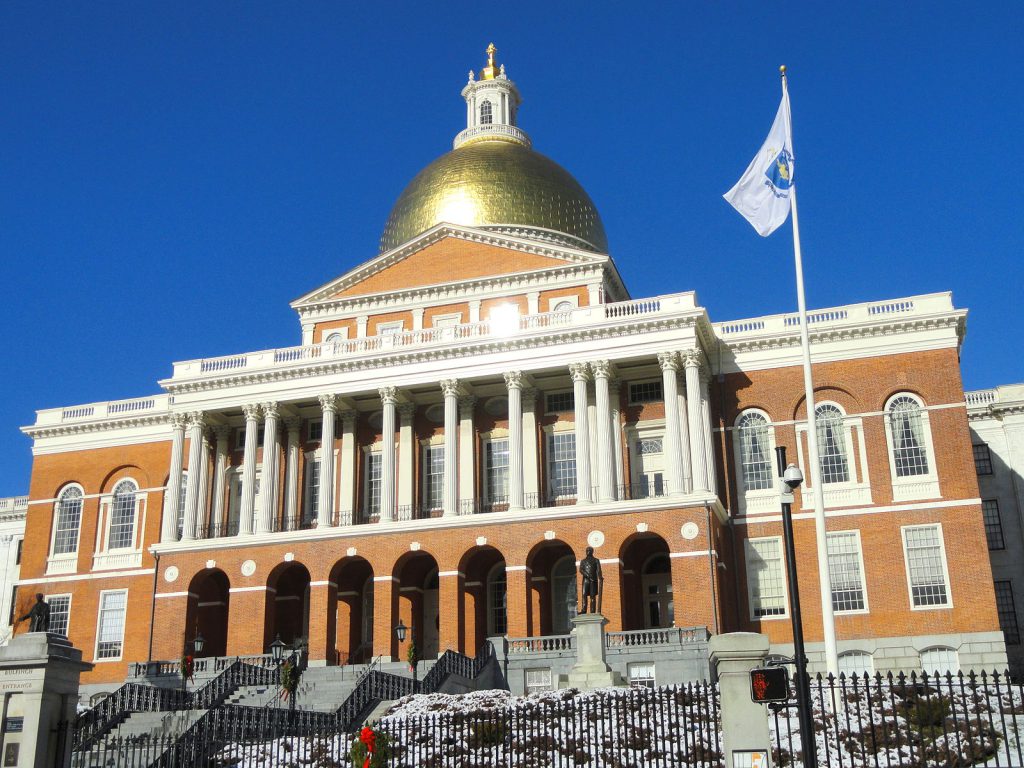
BOSTON, MA – July 30, 2020 – Sahiyo would like to thank the President of the Massachusetts Senate, Karen Spilka, and bill sponsor Senator Joe Boncore (D-First Suffolk and Middlesex) for the passage of bill H4606 “An Act Relative to the Penalties for the crime of Female Genital Mutilation/Cutting (FGM/C)” in Massachusetts. The FGM/C bill had a favorable vote in a formal session of the Senate, after it passed in the House on July 16th. Governor Charlie Baker will have 10 days to sign the bill. Survivors Mariya Taher, an Anonymous survivor, and activist Hanna Stern created a change.org petition to plead with the Massachusetts state legislature to protect young girls in Massachusetts from being cut by making FGM/C illegal. Taher, in particular, was praised by Senator Boncore for her work and advocacy on the issue. Taher has worked with the Women’s Bar Association of Massachusetts independently, and on behalf of Sahiyo – United Against Female Genital Cutting, of which she is the U.S. Executive Director and co-founder. Senator Boncore also recognized Sahiyo for their work on advocating for the abandonment of FGM/C. A member of the legislative working group, Joanne Golden, is also a member of the U.S. Advisory Board for Sahiyo. On June 16th, the Massachusetts House of Representatives voted favorably to pass the bill. The FGM/C bill not only has bipartisan support, but also bicameral support, with over 100 Senate and House cosigners of the original bills (H3332, H1466). The bill has also been supported by almost 50 organizations, including The Women’s Bar Association of Massachusetts, the AHA Foundation, UNICEF USA, the U.S. End FGM/C Network, Boston Mayor’s Office of Women’s Advancement, Office of the Child Advocate, Caucus of Women Legislators, American Academy of Pediatrics – Massachusetts Chapter, and American Congress of Obstetricians and Gynecologists (ACOG) – Massachusetts section, and Sahiyo, to name only a few. FGM/C is defined by the World Health Organization as removal of all or part of a girl’s healthy genitals and surrounding tissue for non-medical reasons, often resulting in serious health consequences, including the risk of death in childbirth, and lifelong trauma. There are no health benefits to this practice. According to the Centers for Disease Control, half a million women and girls living in the U.S. have been cut or are at risk of FGM/C. Over fourteen thousand such women and girls reside in Massachusetts, which ranks as 12th in the nation for at-risk populations. Last session, the Joint Judiciary Committee heard unequivocal testimony from survivors that FGM/C happens in the U.S., and that girls born in Massachusetts are at risk. Thirty-eight states have already passed laws banning FGM/C, including during the shutdown for the COVID-19 pandemic, and we respectfully urge Governor Baker to sign bill H4606 into law so that Massachusetts can become number 39. In November 2019, a U.S. District court struck down the federal law making FGM/C illegal, finding that Congress exceeded its authority under the U.S. constitution, and that FGM/C is a violent crime that must be regulated by the states. Top Massachusetts law enforcement officials testified last September that existing state criminal laws would not cover FGM/C. The Department of Children and Families considers FGM/C a form of child abuse. Massachusetts must act to stop this practice. Thank you to Senate President Spilka and House Speaker DeLeo, and our House and Senate bill sponsors for your leadership, support, and action on such an important issue of women and girl child rights.
Massachusetts House passes FGM/C bill
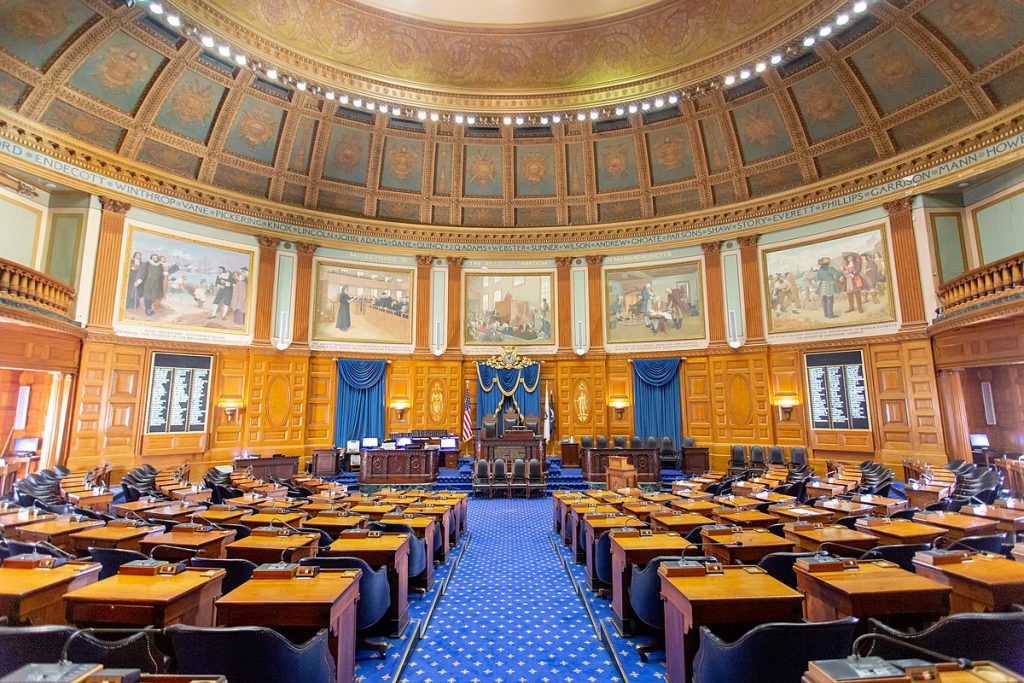
July 16, 2020 – The Massachusetts House of Representatives has just voted favorably in an informal session to pass a bill to protect girls from female genital mutilation/cutting (FGM/C). H.4606 – An Act Relative to the Penalties for the Crime of Female Genital Mutilation will now go to the Senate floor for a vote. Survivor Mariya Taher and activist Hanna Stern created a change.org petition to plead with the Massachusetts state legislature to protect young girls in Massachusetts from being cut by making illegal FGM/C. Taher has worked with the Women’s Bar Association of Massachusetts independently and on behalf of Sahiyo – United Against Female Genital Cutting, of which she is the U.S. Executive Director and co-founder. Sahiyo, along with Taher, Yusuf and Stern, would like to thank the Women’s Bar Association of Massachusetts, Speaker of the Massachusetts House of Representatives, Robert A. DeLeo, and bill sponsors State Representatives Jay Livingstone (D-8th Suffolk), Natalie Higgins (D-4th Worcester), and Brad Jones (R-20th Middlesex, House Minority Leader) for today’s passage of bill H4606 “An Act Relative to the Penalties for the crime of Female Genital Mutilation (FGM)” in Massachusetts. The FGM bill has not only bipartisan support, but also bicameral support, with over 100 Senate and House cosigners of the original bills (H3332, H1466). The bill has also been supported by almost 50 organizations, including The Women’s Bar Association of Massachusetts, U.S. End FGM/C Network, Sahiyo, UNICEF USA, Boston Mayor’s Office of Women’s Advancement, Office of the Child Advocate, Caucus of Women Legislators, American Academy of Pediatrics – Massachusetts Chapter, and American Congress of Obstetricians and Gynecologists (ACOG) – Massachusetts section, to name only a few. FGM/C is defined by the World Health Organization as removal of all or part of a girls’ healthy sex organs and surrounding tissue for non-medical reasons, often resulting in serious health consequences, the risk of death in childbirth, and lifelong trauma. According to the Centers for Disease Control, half a million women and girls living in the United States have been cut or are at risk of FGM/C. Over fourteen thousand such women and girls reside in Massachusetts, which ranks as 12th in the nation for at-risk populations. Last legislative session, the Joint Judiciary Committee heard unequivocal testimony from survivors that FGM/C happens in the U.S. and that girls born in Massachusetts are at risk. Thirty-eight states have already passed laws banning FGM/C including during the shutdown for the COVID19 pandemic, and with your immediate action by the Massachusetts Legislature and Governor Baker, Massachusetts can become number 39. We do not want our state to be a destination for FGM/C. In November 2019, a U.S. District court struck down the federal law making FGM/C illegal, finding that Congress exceeded its authority under the U.S. constitution, and that FGM/C is a violent crime that must be regulated by the states. Top Massachusetts law enforcement officials testified last September that existing state criminal laws would not cover FGM/C. The Department of Children and Families considers FGM/C a form of child abuse. Massachusetts must act to stop this practice. We respectfully urge all to support this legislation and take the necessary steps immediately to send it to the Senate floor for a vote before the end of the session on July 31st. Sahiyo is dedicated to empowering Asian communities to end female genital cutting (FGC) and create positive social change. By working towards an FGC-free world, we aim to recognize and emphasize the values of consent and a child’s/woman’s right over her own body. We aim to enable a culture in which female sexuality is not feared or suppressed but embraced as normal. The Women’s Bar Association of Massachusetts (WBA) has over 1500 members and was founded in Boston, Massachusetts in 1978 with a goal to achieve the full and equal participation of women in the legal profession and in a just society. It is one of the oldest and largest women’s bar associations in the country. photo by Lëa-Kim Châteauneuf
